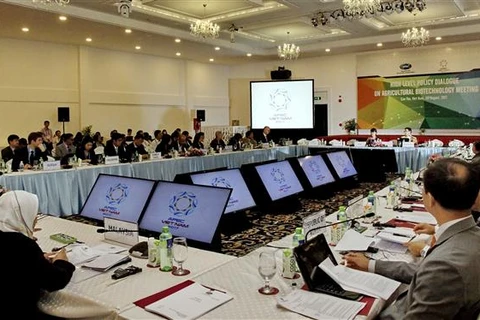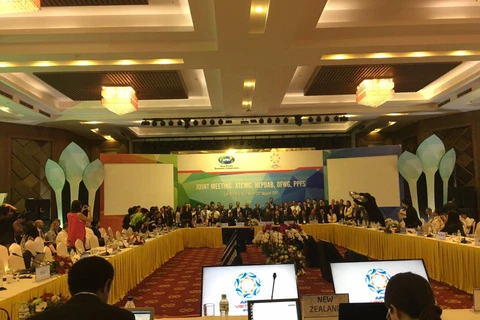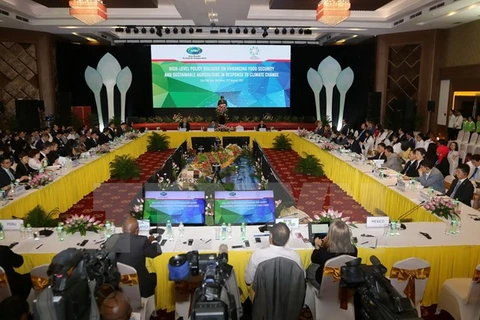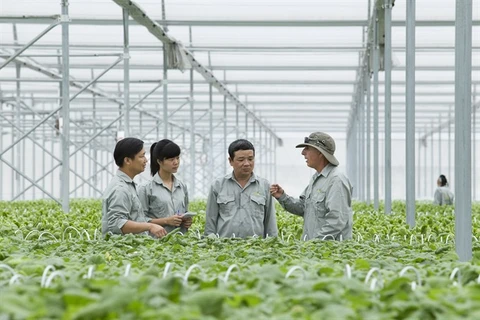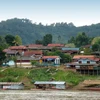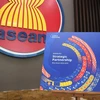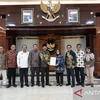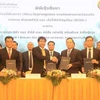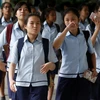 Sustainable agriculture in response to climate change is among issues high on the agenda at APEC meetings (Photo: VNA)
Sustainable agriculture in response to climate change is among issues high on the agenda at APEC meetings (Photo: VNA) Da Nang (VNA) – Solutions to boost sustainable development of agriculture in response to climate change are among issues that delegates of APEC member economies have spent time discussing over the last few days of the APEC Economic Leaders’ Week in Da Nang city.
At a dialogue with youth delegates as part of the APEC Voices of the Future forum, Noeleen Heyzer, former Under-Secretary-General of the UN and former Executive Secretary of the UN Economic and Social Commission for Asia and the Pacific, said climate change can directly affect future generations in such issues as employment, startup opportunities and labour movement.
APEC member economies need to immediately take action to cope with climate change and help younger generations in the region have a safer world, she noted.
Vietnamese Minister of Agriculture and Rural Development Nguyen Xuan Cuong said Vietnam is one of the five countries most vulnerable to climate change impacts. In 2016, natural disasters nationwide caused economic losses equivalent to about 1 percent of total GDP.
Without short- and long-term response solutions, Vietnam as well as other member economies will fail to ensure food security, reduce poverty, develop sustainable agriculture or adapt to climate change, he noted.
APEC is the world’s leading region in terms of agricultural production and food export. It has a vast geographical area and combined population of about 2.8 billion, or 40 percent of the global population. These are favourable conditions to form supply and value chains of agricultural products in the region.
Cuong said amid complex developments in the world and unpredictable climate change impacts, how to develop sustainable agriculture in response to climate change is a big question for the world’s agricultural sector.
Hi-tech agriculture is strongly growing in the economies with developed science and technology. However, the differences in production capacity, resources and technology are hampering common development, requiring APEC economies enhance cooperation and seek the best solutions towards sustainable agriculture in response to climate change, the Vietnamese official added.
Hong-Sang Jung, Executive Director of the APEC Climate Centre, said to overcome those barriers, member economies should focus on climate change-adapted smart agriculture, management of food losses, and application of high technology in agricultural production.
He added it is also necessary to have a good knowledge of the role of weather and climate information in the global food system, weather and climate impacts on agricultural production and consumption systems, and the use of weather and climate information in building agricultural product systems.
Established in 1989, APEC comprises Australia, Brunei, Canada, Chile, China, Hong Kong (China), Indonesia, Japan, the Republic of Korea, Malaysia, Mexico, New Zealand, Papua New Guinea, Peru, the Philippines, Russia, Singapore, Chinese Taipei, Thailand, the US, and Vietnam.
It represents 39 percent of the world population, 57 percent of the world GDP and 47 percent of the total trade.-VNA
VNA
